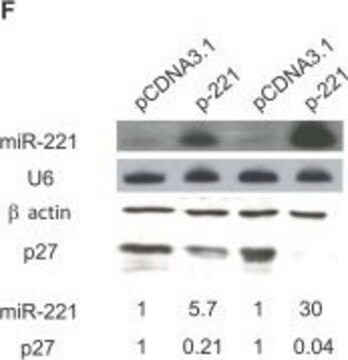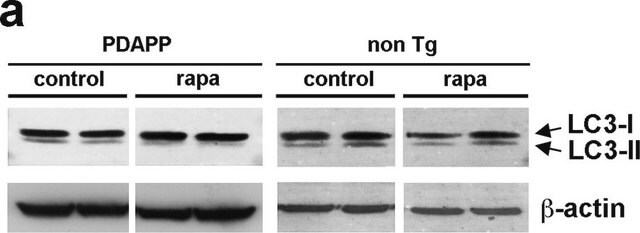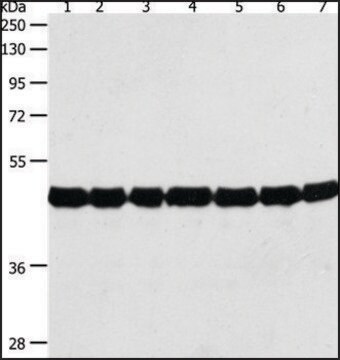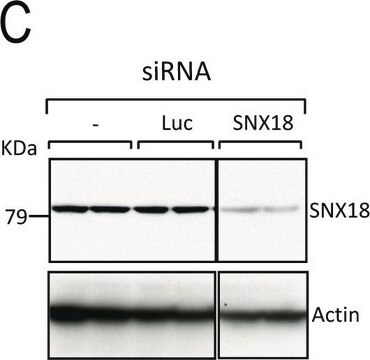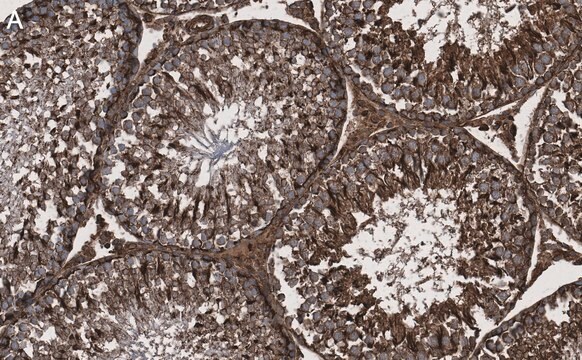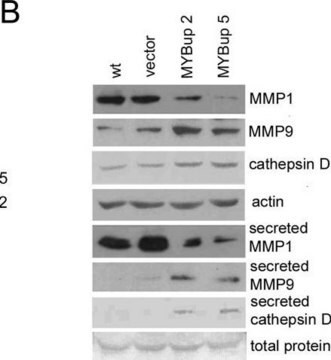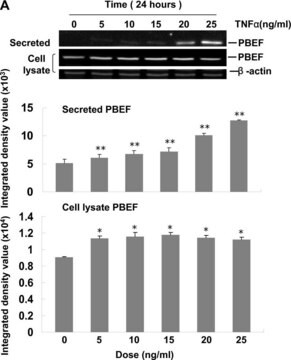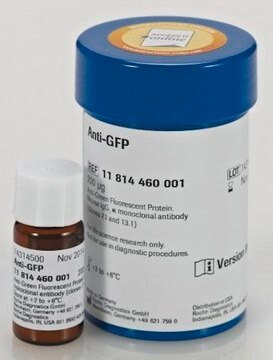A0480
Anti-Actin (plant) antibody, Mouse monoclonal
clone 10-B3 (MAbGPa), purified from hybridoma cell culture
Sinonimo/i:
Monoclonal Anti-Actin (plant) antibody produced in mouse
About This Item
Prodotti consigliati
Origine biologica
mouse
Livello qualitativo
Coniugato
unconjugated
Forma dell’anticorpo
purified from hybridoma cell culture
Tipo di anticorpo
primary antibodies
Clone
10-B3 (MAbGPa), monoclonal
PM
antigen ~45 kDa
Reattività contro le specie
plant
Confezionamento
antibody small pack of 25 μL
tecniche
immunohistochemistry: suitable
indirect ELISA: suitable
western blot: 1-2 μg/mL using corn leaves extracts
Isotipo
IgG2b
Condizioni di spedizione
dry ice
Temperatura di conservazione
−20°C
modifica post-traduzionali bersaglio
unmodified
Informazioni sul gene
Arabidopsis thaliana ... ACT8(841347)
Cerchi prodotti simili? Visita Guida al confronto tra prodotti
Descrizione generale
Monoclonal Anti-Actin (plant) antibody recognizes actin in several plant species including Dictyostelium. In Arabidopsis, the antibody recognizes all eight actins isoforms (ACT1, 2, 3, 4, 7, 8, 11 and 12).
Immunogeno
Applicazioni
- two-layer phos-tag polyacrylamide gel electrophoresis (PAGE)
- immunohistochemistry and enzyme-linked immunosorbent assay (ELISA).
- immunoblotting
Azioni biochim/fisiol
Stato fisico
Esclusione di responsabilità
Non trovi il prodotto giusto?
Prova il nostro Motore di ricerca dei prodotti.
Codice della classe di stoccaggio
10 - Combustible liquids
Classe di pericolosità dell'acqua (WGK)
WGK 3
Punto d’infiammabilità (°F)
Not applicable
Punto d’infiammabilità (°C)
Not applicable
Dispositivi di protezione individuale
Eyeshields, Gloves, multi-purpose combination respirator cartridge (US)
Certificati d'analisi (COA)
Cerca il Certificati d'analisi (COA) digitando il numero di lotto/batch corrispondente. I numeri di lotto o di batch sono stampati sull'etichetta dei prodotti dopo la parola ‘Lotto’ o ‘Batch’.
Possiedi già questo prodotto?
I documenti relativi ai prodotti acquistati recentemente sono disponibili nell’Archivio dei documenti.
I clienti hanno visto anche
Articoli
In the midst of beeping lab timers, presentations and grant deadlines, it is easy to take for granted the quality of lab reagents.
Il team dei nostri ricercatori vanta grande esperienza in tutte le aree della ricerca quali Life Science, scienza dei materiali, sintesi chimica, cromatografia, discipline analitiche, ecc..
Contatta l'Assistenza Tecnica.